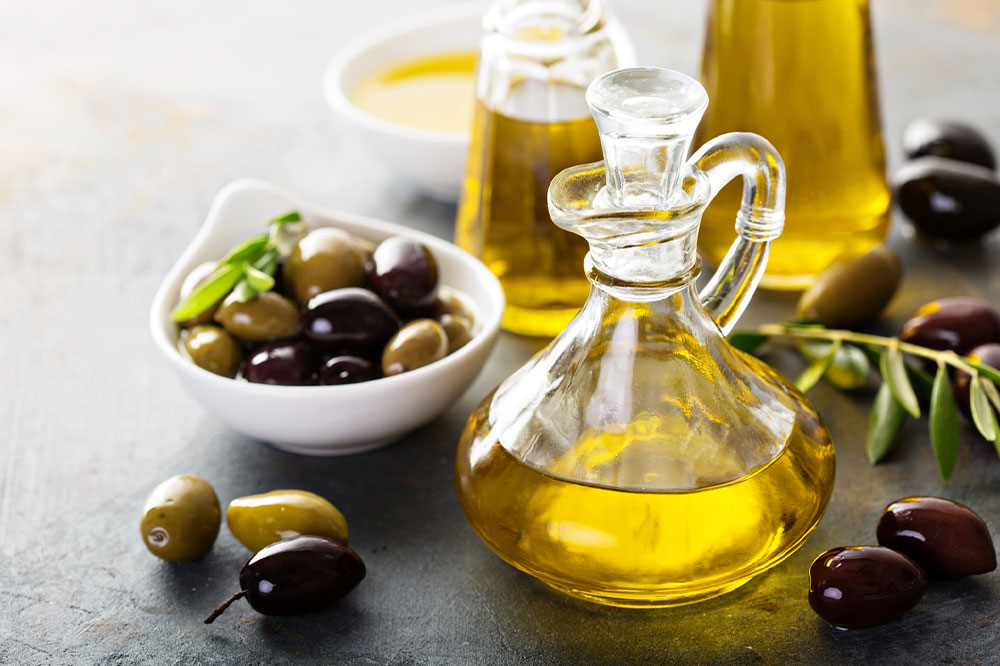Top 10 Natural Remedies for Psoriasis

Psoriasis is a condition in which cells quickly build up on the skin’s surface. Depending on their skin tone, people with the condition may notice redness accompanied by silvery-white scales, salmon-colored patches, or purple skin patches with scales. The chronic condition can also cause itchiness, pain, cracks, and bleeding. It usually develops on the scalp, forehead, neck, and behind the ears. Stress, skin injury, weather, illnesses, and allergies are some common triggers of the condition.
Understanding the condition
Psoriasis is an autoimmune skin condition that often causes a lot of discomfort to the patient. While its exact causes are not known, health issues such as arthritis, insulin resistance, high cholesterol, and heart disease have also been linked to the disease. Its symptoms can range from itchiness, dry skin, and joint pain to pitted nails. Even though this long-term disease has no permanent cure, it can be managed based on the guidance of a healthcare expert. Further, a few effective natural remedies for psoriasis can also help provide relief.
Natural remedies
Olive oil
Rich in omega-3 fatty acids, which help fight inflammation, olive oil can relieve skin irritation. Patients dealing with the skin condition can apply small amounts of olive oil to the affected areas, such as elbows and the scalp. The oil can be massaged and gently rubbed into the skin to soften the scaly patches. For large patches of affected areas, two tablespoons of olive oil can be added to the bath to ease discomfort.
Apple cider vinegar
A common household ingredient, apple cider vinegar can exhibit anti-inflammatory properties. It can aid in reducing irritation and soreness experienced by people with psoriasis. Further, apple cider vinegar also has antiseptic properties that can prevent skin infections. The ingredient can either be diluted with water or used as it is, however, experts suggest diluting ACV with water in a 1:1 ratio to prevent any burning sensation. Further, it is advised not to use ACV on injured skin or if the skin is cracked.
Baking soda
Baking soda has antifungal properties, and it can help reduce the intensity of psoriasis patches. Additionally, baking soda can reduce inflammation in the affected areas and decrease one’s discomfort. Using a washcloth, a solution with 1 and a half spoonfuls of baking soda and 3 gallons of water can be applied to the skin to relieve the symptoms associated with the skin condition. If one experiences a burning sensation when applying the solution, baking soda can also be added to the bathwater.
Turmeric
This yellow spice is immensely helpful in reducing the number of psoriasis flare-ups. Turmeric also helps relieve inflammation and accelerate wound healing. As the spice contains curcumin, an antioxidant, it protects the skin by neutralizing free radicals. For optimum results, the spice can either be mixed with some juice and a spoonful of black pepper or added in tiny amounts to one’s everyday food while cooking.
Oats
One of the most effective and natural ways to soothe the skin, oats help reduce redness and itching caused by this inflammatory skin disease. So, the remedy can be adopted in the form of an oatmeal bath. Here, a cup of dry oats could be ground to a powder and dropped into the bathwater. Even though oats are incredibly beneficial in alleviating itching, sometimes they can make the skin feel immensely dry, exacerbating the discomfort of the patient. So, this remedy should be adopted with caution.
Aloe vera
This plant has antiseptic, antibacterial, and fungicidal properties. Aloe vera also works as a detoxifying agent and helps in the reduction of inflammation. Further, it provides a cooling sensation to help relieve irritated skin. The remedy can be used either in the form of the raw gel extract from the plant or as a topical cream 2–3 times a day to soothe the psoriasis flares.
Yoga and meditation
As stress is one of the major triggers of the condition, bringing down the stress levels might help in relieving the symptoms. Yoga and meditation help in reducing stress and helping the patient steer clear of any flares. Practicing meditation and yoga for 10–15 minutes every day can prove to be beneficial. Additionally, yoga also improves flexibility and eases joint pain, which could be common symptoms among people who are affected by psoriatic arthritis.
Coconut oil
A gentle massage using coconut oil on the skin can relieve dryness. This is an effective natural remedy for psoriasis as it traps moisture and helps the affected area stay moisturized for a longer time. A small amount of coconut oil should be gently rubbed on the psoriasis plaques to soothe the swelling and redness. In addition, virgin coconut oil can stop the growth of harmful bacteria and aid in avoiding infections.
Tea tree oil
Extracted from a plant in Australia, tea tree oil has been in use as a remedy for centuries. It boasts anti-inflammatory properties used to treat conditions such as athlete’s foot, nail fungus, and psoriasis. Research suggests that it can also help in the management of itchiness and pain often brought on by psoriasis. As it is concentrated, tea tree oil should be diluted with carrier oil to ensure safer application and increased efficiency.
Oregon grape
An evergreen plant, its bark, stem, and root are used for various healing purposes. It is also recommended for itchy and scaly skin, stomach problems, and other health conditions. The root of the plant has also been used to ease swelling and other uncomfortable skin symptoms, making it a popular natural remedy for psoriasis. Further, studies show that alkaloids, such as those found in the Oregon grape, can prevent the abnormal growth of skin cells.
Before adopting the above-mentioned natural remedies for psoriasis, people with the condition should seek the guidance of a doctor.






